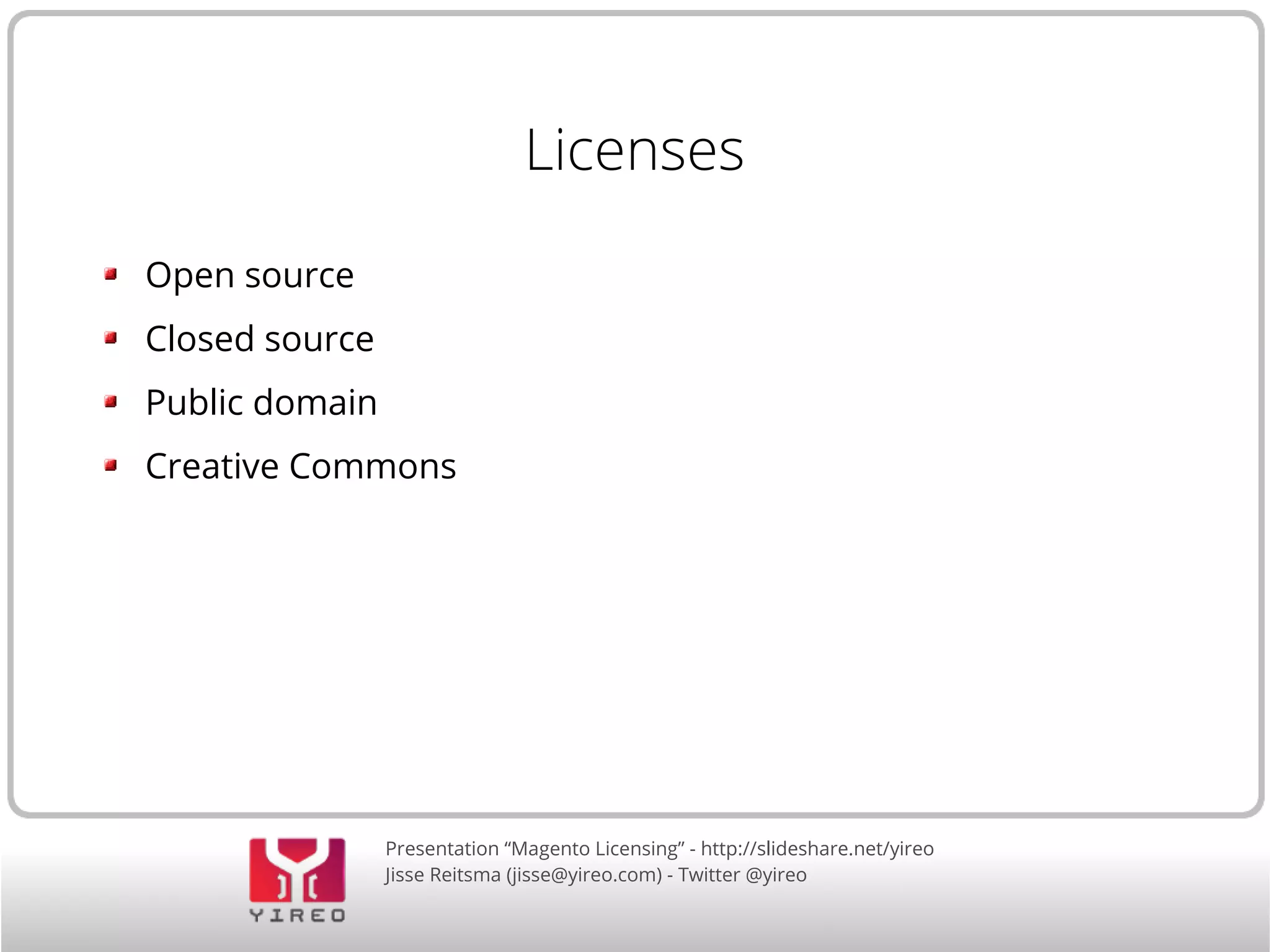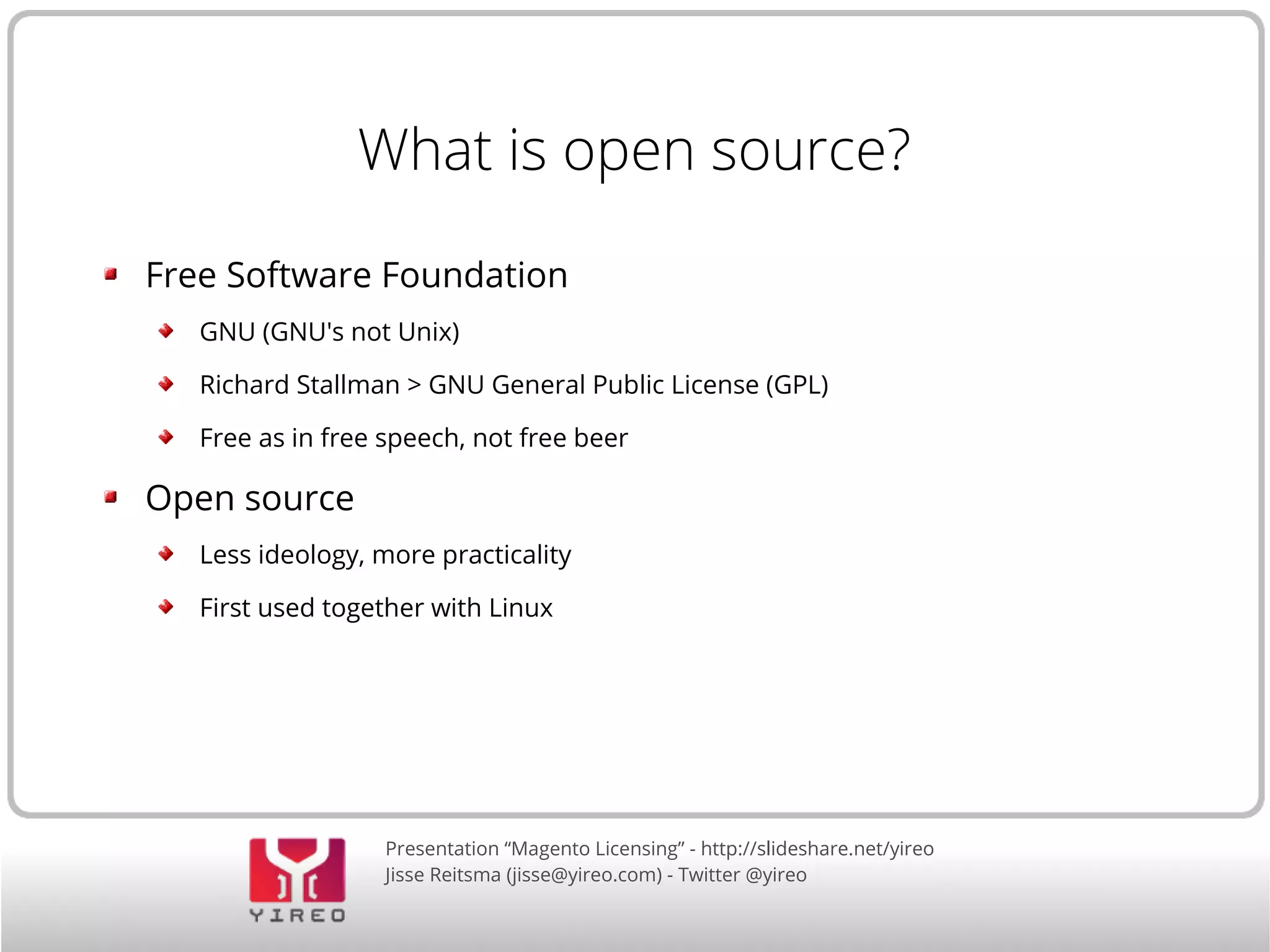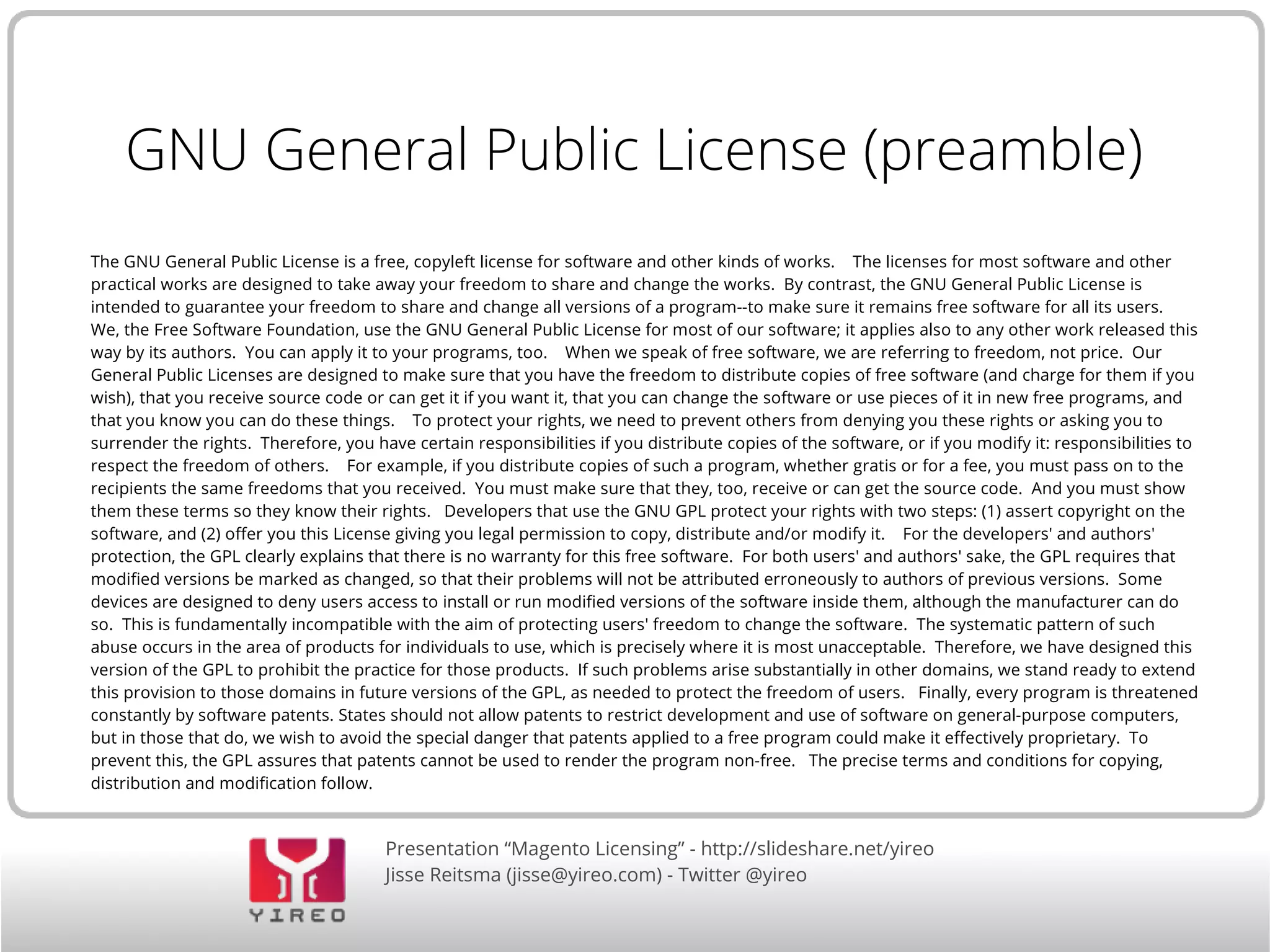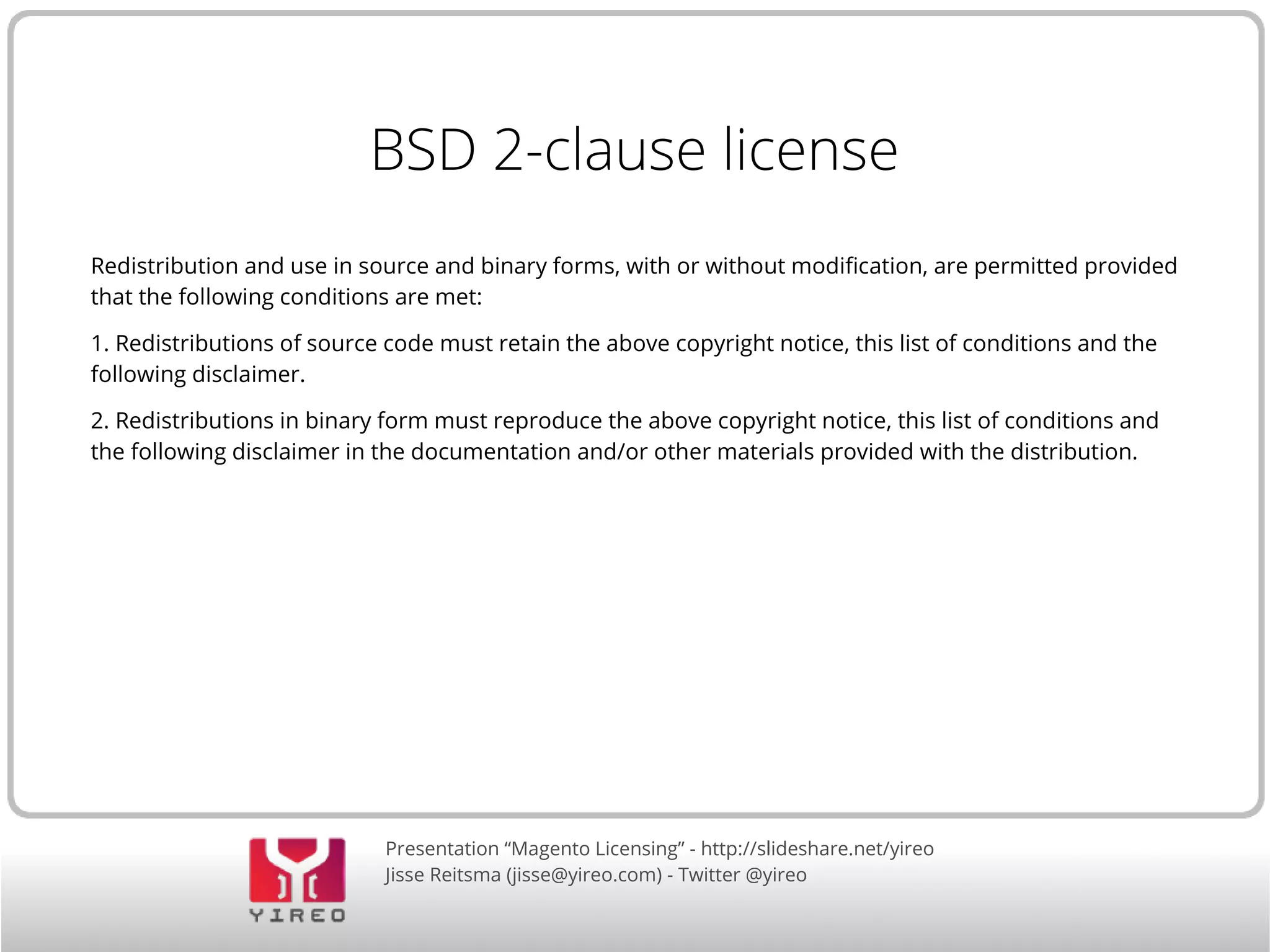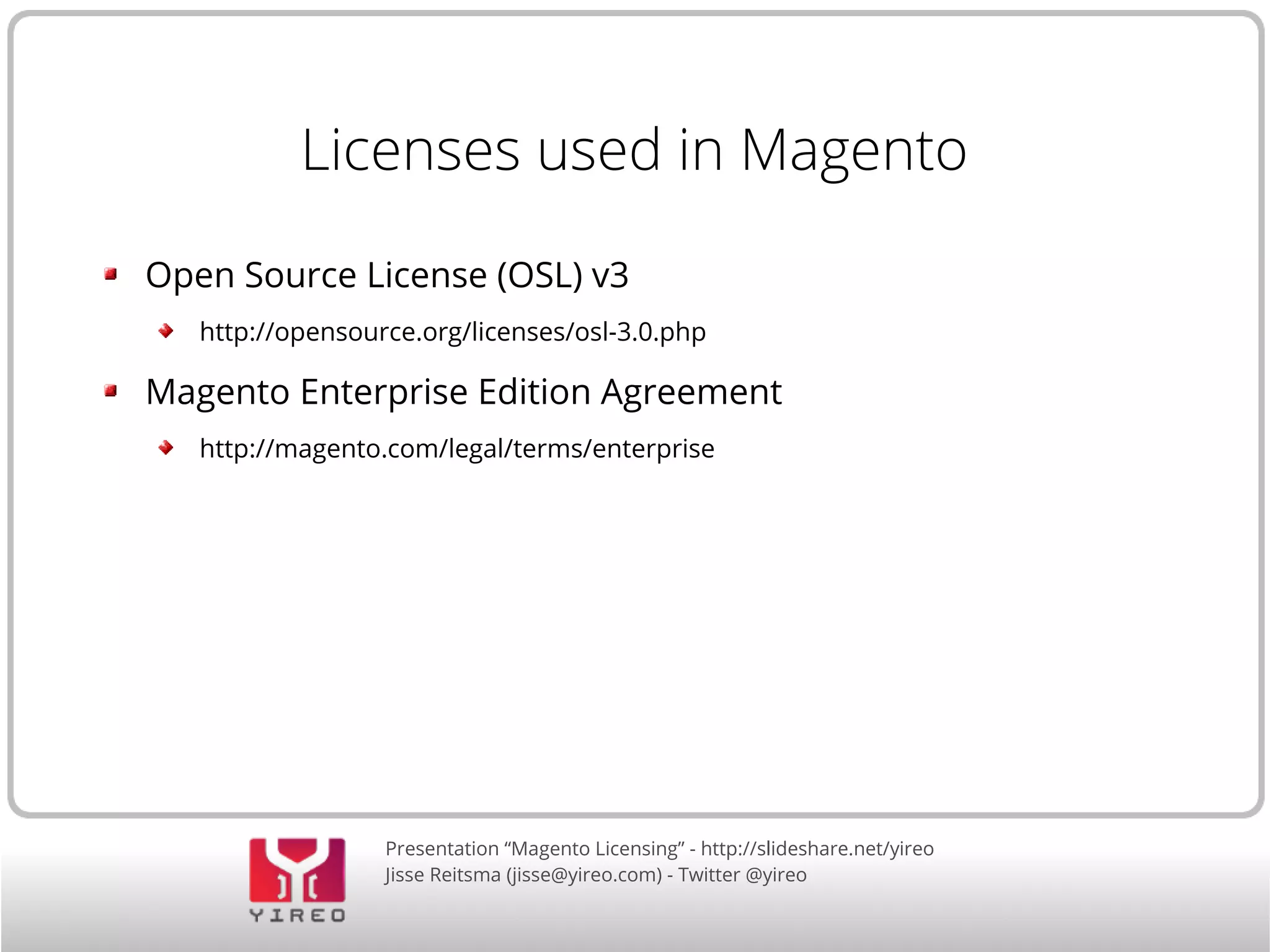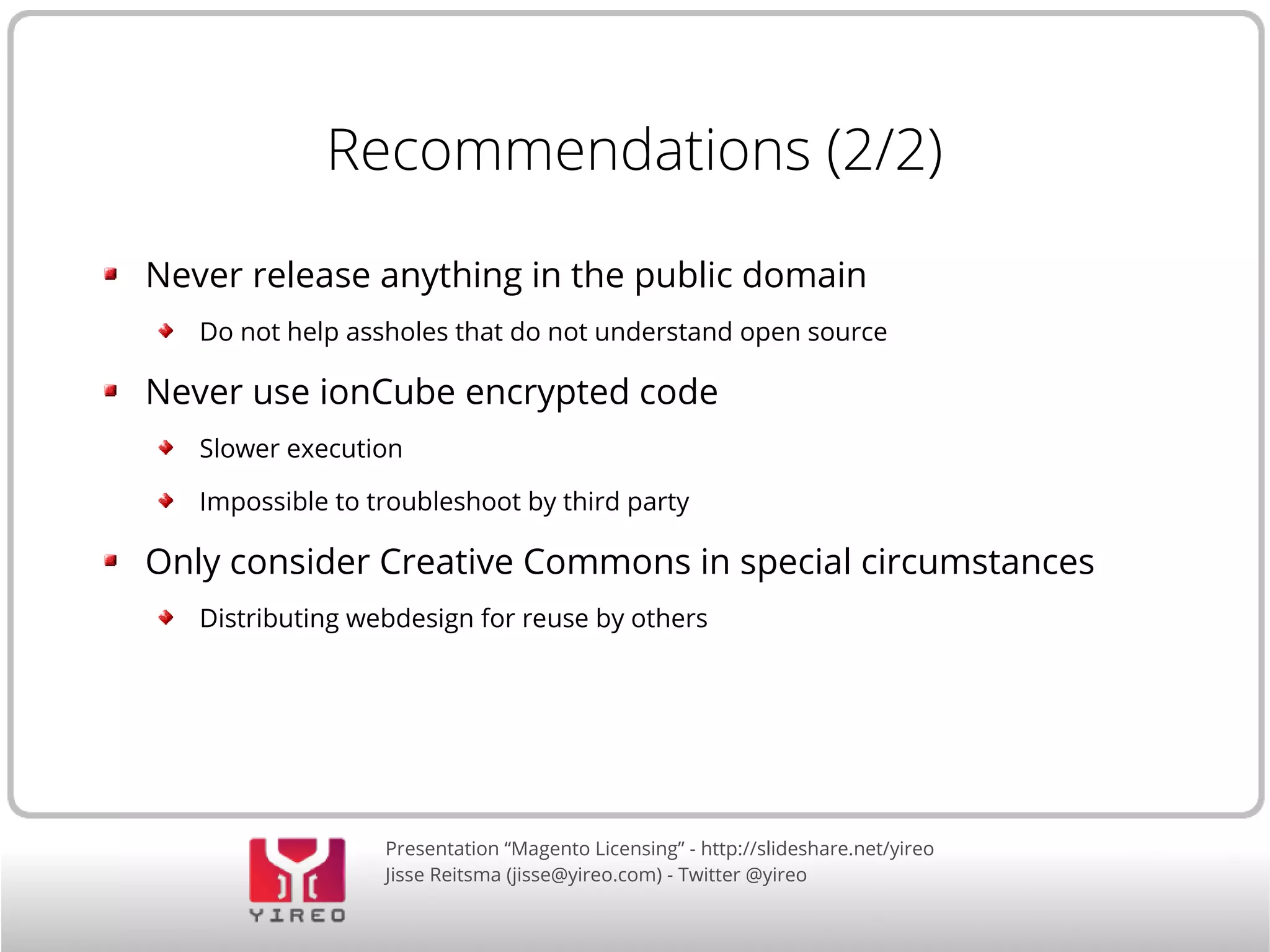The presentation on Magento licensing discusses various types of software licenses, focusing on open source and the GNU General Public License (GPL), which ensures users' freedom to share and modify software. It emphasizes the importance of understanding copyright and licensing agreements for developers and provides recommendations for using licenses like the Open Source License (OSL) and BSD. The document advises against using GPL with Magento and highlights the risks of public domain releases and encrypted code.

